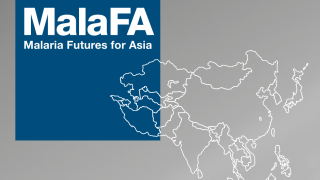New report reflects on future of malaria elimination in Asia
Asian malaria experts surveyed in a new report have called for renewed investment in research and development, stating that malaria elimination in the Asian region by 2030 could be threatened by resistance to existing antimalarials and insecticides.
The MalaFAsia (Malaria Futures for Asia) report, commissioned by Novartis Social Business and launched on Tuesday in Bangkok, captured the opinions of a multitude of researchers, NGOs and program directors in India, Cambodia, Myanmar, Thailand and Vietnam – the first time in many years that these groups had been asked for their views on progress towards malaria elimination.
Although the number of reported malaria cases per thousand population has fallen across the region by over 60%, experts surveyed in the report warned that there was a critical need for researchers to develop new insecticides and treatments. They also expressed concern for remote and migrant populations in South and Southeast Asia, who would be challenging to reach with treatment and prevention methods.
However, two thirds of experts still maintain that P. falciparum malaria, the most severe strain, would be eliminated by the World Health Organisation’s 2030 target.
“Complacency is always a danger,” said Professor Yongyuth Yuthavong, former Deputy Prime Minister of Thailand and member of the RBM Partnership to End Malaria board, “I have spent a lifetime fighting malaria and know that this final stage toward elimination will be the toughest.”
Malaria No More UK was among partners consulted on the research alongside the Asia Pacific Leaders Malaria Alliance, the RBM Partnership to End Malaria, Malaria No More US and the Malaria Consortium. CEO James Whiting said, “this report highlights that despite successes in tackling malaria over the past decade, progress is not inevitable, and it has been slowed by recent shortfalls in funding and increasing insecticide and drug resistance. If we are to achieve our goal of ending malaria for good, it is vital that we put the spotlight back on the disease and focus national and global energy and resources on addressing the issues that threaten progress, both in Asia and beyond.”






